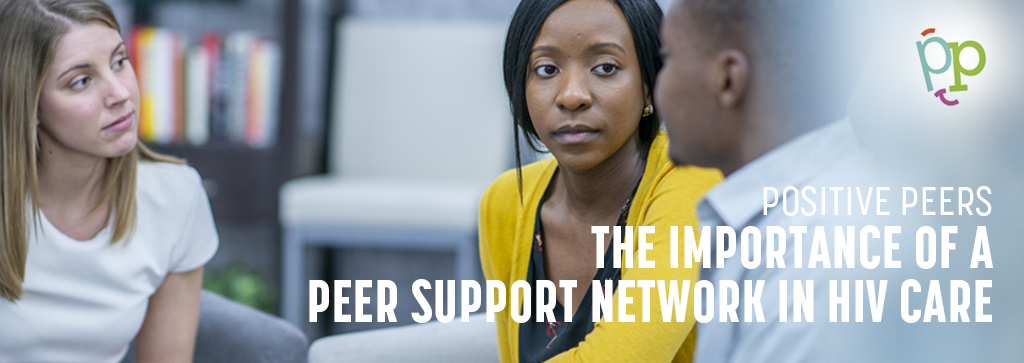By: Jennifer McMillen Smith, LISW-S, HIV Social Worker at MetroHealth Medical Center and medically reviewed by Ann K. Avery, MD, Infectious Disease Physician at MetroHealth Medical Center
The Importance of a Peer Support Network in HIV Care
Navigating HIV doesn’t need to be a one-person operation. Living with HIV – be it a recent diagnosis or a decades-long journey – should include a team of support. We value Infectious Disease specialists and medical case managers, but we must also include a peer support network in this equation. This can be formal or informal. What’s most important is, the peer support network is there.
Often, people feel isolated after an HIV diagnosis. They may also feel stigma, alienation, perceived lack of desirability, or feel there is nobody in their life who can truly understand what they are going through. Levels of isolation can ebb and flow. With a solid peer support network, there can be consistency along with a core cadre of cheerleaders rooting for each other. At Positive Peers, we have been successful because we’ve kept the structure intact, knowing that participants can shift. People in our online peer support network can move elsewhere, fall out of care, or stop participating. An ideal system remains and welcomes members old and new.
This support provides an organic knowledge exchange among people with lived experience. They can foster meaningful connections, create understanding and empathy in the deep, dark void where isolated people can feel alone. This peer support improves health outcomes while supplementing routine clinical care, working wonders for retention and adherence. The collective is stronger than an individual having to navigate everything on their own.
Together, we can connect, help, learn, and inspire.
Qualitative interview responses within our Positive Peers virtual community suggest interpersonal connections are important and users demonstrate a desire for building relationships through the app, even among some participants who log-in infrequently.
“It's important to just, regardless of how much you actually make the choice to use it, I think it's important to know it is there for that time when you really, really do need it.”
“It taught me to accept that I have HIV and there’s other people out there that have it and I can talk to the people in the app and they understand some of my questions and concerns.”
An HIV peer support network is similar to a civil association, a chess club, or an affinity group. This assembly of folks with a common experience can socialize and commiserate in ways that actually saves lives; they can encourage each other, hold each other accountable, discuss prescriptions, pill fatigue, disclosure concerns, dating and sex, along with a plethora of topics. They serve as stigma-free zones absent of judgment. With trust, they can build friendships and lifelines. Each member of a peer support network is available to offer advice.
This systematic review and meta-analysis from 2021 offers further evidence of a HIV peer support system. The authors assert: Overall, peer-support with routine medical care is superior to routine clinic follow-up in improving outcomes for people living with HIV.
Overall, peer-support with routine medical care is superior to routine clinic follow-up in improving outcomes for people living with HIV.
Yes, we’ve established social isolation can wreak havoc on individuals. Peer support is an ideal alternative. Often, participants achieve confidence and a sense of value through the support and hope they offer others. This can be opportunity for persons living with HIV for years to practice altruism by imparting wisdom to those recently diagnosed. Imagine what lifehacks are shared.
Peer support networks are necessary, and we must make sure they’re accessible. In-person meetings may be difficult due to geographic locations, pandemics, or just personal preferences, but online options should always be available. If a group needs support in setting up infrastructure, we as providers should be able to lend guidance. This can be Zoom tutorials or going old school with one-on-one telephone calls.
Together, we can go far.
We are poised to lift up our community with consistent, welcoming, and affirming peer support. Learn more about the benefits of becoming a Key Health Partner today.
